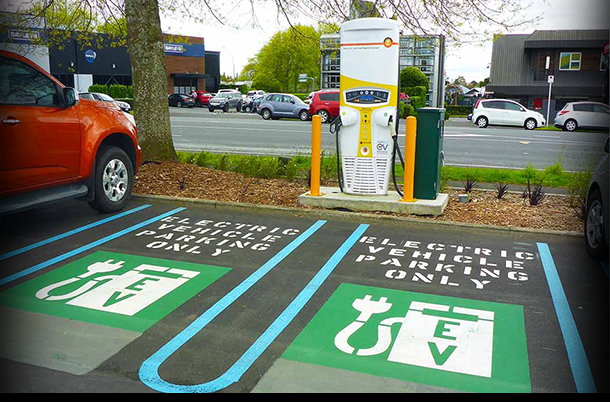
Think of how tethered you are to your smartphone. If the battery isn’t charged, you are basically unable to do anything – you cannot perform even the most basic task or transaction. Now apply this same level of techno-dependency to a centralised grid to traveling long-distance by car. Welcome to the nightmare of electric vehicles.
One of the explicit goals of the globalists’ Great Reset planetary overhaul is to disincentive individuals and families from traveling long distances by road in the way which combustion engines and affordable hydrocarbon fuels currently allow for. This ability has increased the quality and independence for the lives of countless working and middle class people, as well as allowing many regions and countries to develop in ways never before imagined prior to the industrial revolution. However, elites are now openly stating their desire to end this key aspect of life enjoyed by so many regular working people – in order to foster a technocratic ‘green’ transition, and to supposedly to ‘fight climate change.’ Their solution: electric vehicles.
Only, it’s not really ‘green’ at all, nor is it a viable solution for independent long-range transportation…
Journalist attempts road trip in electric car, ends up spending more time charging than sleeping. ‘Fumes never smelled so sweet,’ she says upon returning to gas fuel.
The Blaze reports…
Wall Street Journal reporter Rachel Wolfe recently ventured from New Orleans, Louisiana to Chicago, Illinois in a brand-new Kia EV6 to test America’s current electric vehicle capabilities and public-charging infrastructure. By the end of her exhausting trip, she said the fumes of gasoline — though particularly expensive at the moment — “never smelled so sweet.”
Never again. Well, at least not for a while, Wolfe would likely say if someone asked her to make a lengthy EV road trip another time.
In a column for the newspaper published this month, the reporter chronicled the difficult journey with all of its pitfalls. It included a shorter range than expected, finicky charging cords, loads of slower-than-advertised charging stations, and large swaths of the country without any “fast” charging stations at all, among other hardships.
In the end, Wolfe said she and her road trip companion, Mack, spent more hours waiting to charge than they did sleeping — which is not exactly a recipe for a successful and enjoyable trip.
Frequently, they were forced to make changes to their charted course and pre-planned schedule due to unexpected battery drains along the highway. “Factors such as average highway speed, altitude changes, and total cargo weight can all impact range, whether derived from a tank of gasoline or a fully charged battery,” a Kia spokesman later informs them.

Get Clive de Carle's Natural Health essentials of the finest quality, including vitamin & mineral supplements here.
They also missed several reservations thanks to not-so-fast charging stations along their route. “It turns out not all ‘fast chargers’ live up to the name,” Wolfe remarked in the column.
“The biggest variable, according to State of Charge, is how many kilowatts a unit can churn out in an hour,” she wrote. “To be considered ‘fast,’ a charger must be capable of about 24 kW. The fastest chargers can pump out up to 350.”
Unfortunately for Wolfe, her charger of choice in Meridian, Mississippi, only claimed to meet that standard, but in reality had trouble cracking 20kW. It was one of many along the way that took hours more time than anticipated.
Worse, during lengthy charging waits, EV drivers are often forced to kill time at nearby convenience stores or fast-food restaurants. For Wolfe and Mack, this meant consuming considerably more junk food than advisable.
Pressed for time near the end of their return trip to New Orleans, the duo decided to sleep just four hours at their hotel in Mississippi, waking up at 4 a.m. to give themselves plenty of margin should anything go wrong during the last leg. Good thing they did. They ended up pulling into their destination with just 30 minutes to spare.
On a positive note, the pair spent just $175 on charging in comparison to the $275 they estimated they would have paid in a similarly-sized gas-fueled vehicle. However, “That $100 savings cost us many hours in waiting time,” Wolfe clarified, adding, “that’s not the whole story.”
It appears that despite the aims of the Biden administration and others, for now, EVs are still best used for saving some money on around-the-town travel — not cross-country journeys.
READ MORE CLIMATE NEWS AT: 21st Century Wire Climate Files
SUPPORT OUR INDEPENDENT MEDIA PLATFORM HERE















